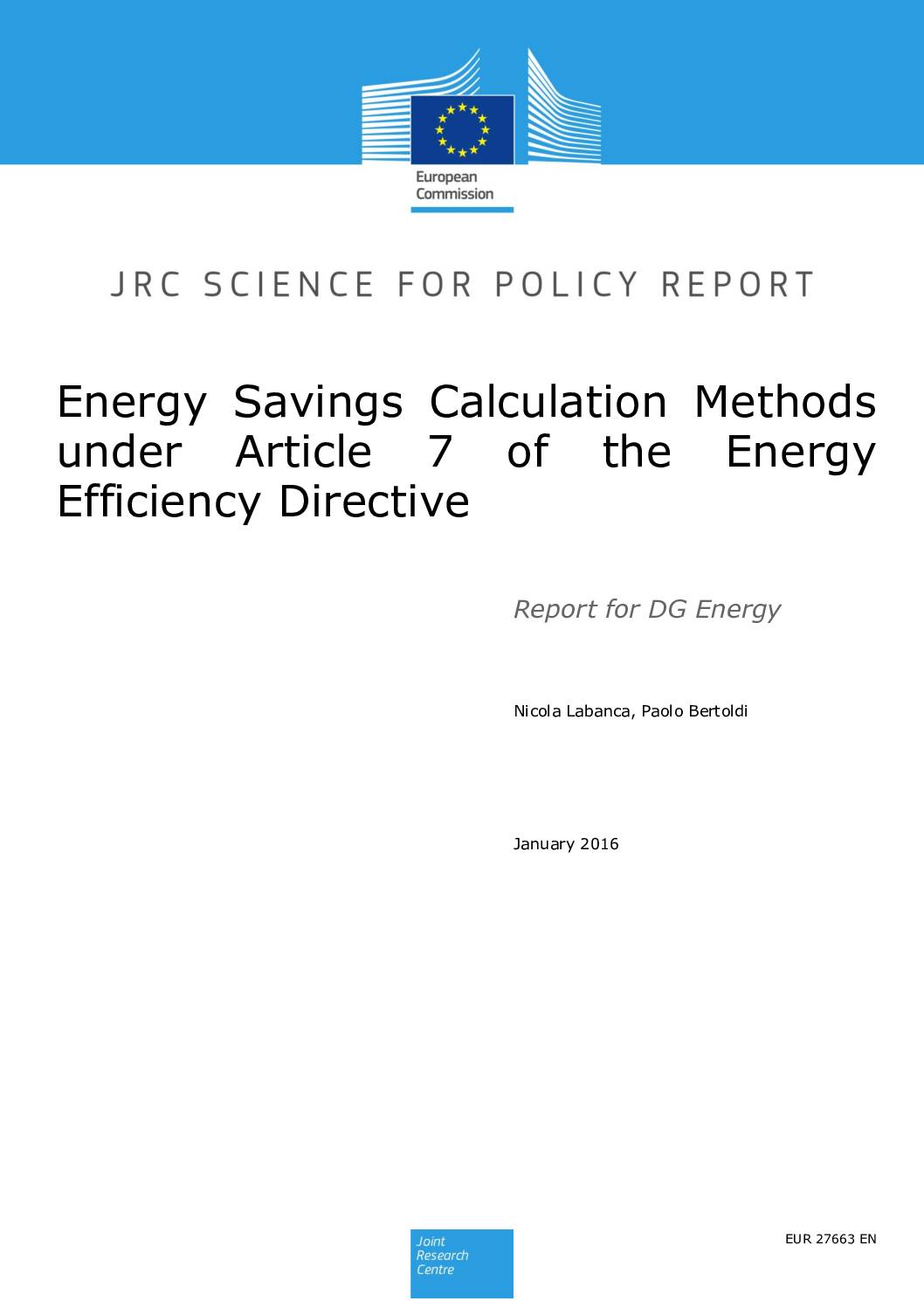This Science for Policy report by the Joint Research Centre (JRC) of the European Commission aims to provide an overview of the main issues at stake with the calculation methods for energy savings generated by measures implemented by EU Member States (MS) under Article 7 of the Directive 2012/27/EU on Energy Efficiency (EED).
The report comprises five sections:
General requirements and key principles to be taken into account for energy savings calculation methodologies
How to define a catalogue of standard measures and calculate associated deemed savings
Methods for assessing energy savings generated by measures through metered savings, scaled savings, surveyed savings
Calculation of energy savings generated by taxation, transport and information measures
Implementation of Monitoring, Verification, Sanctions and Compliance Regimes
The report provides detailed analysis of the various issues and, based on the considerations reported, concludes, among others, that more guidance to MS is needed in order to allow establishing a same level playing field in relation to how energy savings generated by measures have to be calculated.
Furthermore, in the document, it is stressed that a)a definition of the concept of additionality is key in this respect; and b) a definition of the main correction factors to be considered to pass from gross to net energy savings under top-down and bottom-up methodologies possibly used by MS have to be provided in order to ensure that MS can estimate additional energy savings with sufficient accuracy and according to same calculation principles.
Share this

Sectors: Cross cutting, Industry, Renewables
Country / Region: Europe
Tags: energy, energy efficiency, energy efficiency directivesKnowledge Object: Publication / Report
Published by: JRC
Publishing year: 2016
Author: Nicola Labanca, Paolo Bertoldi
